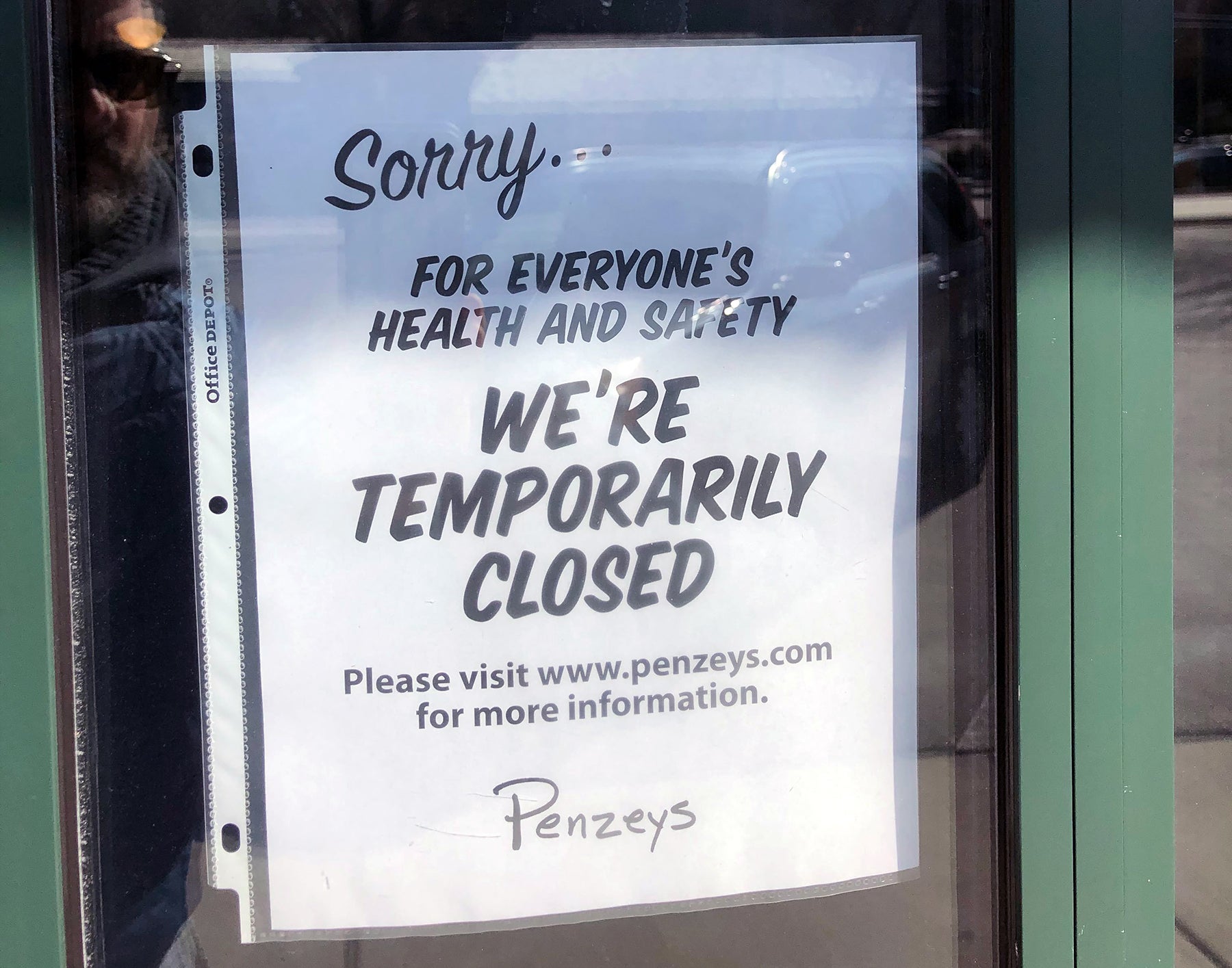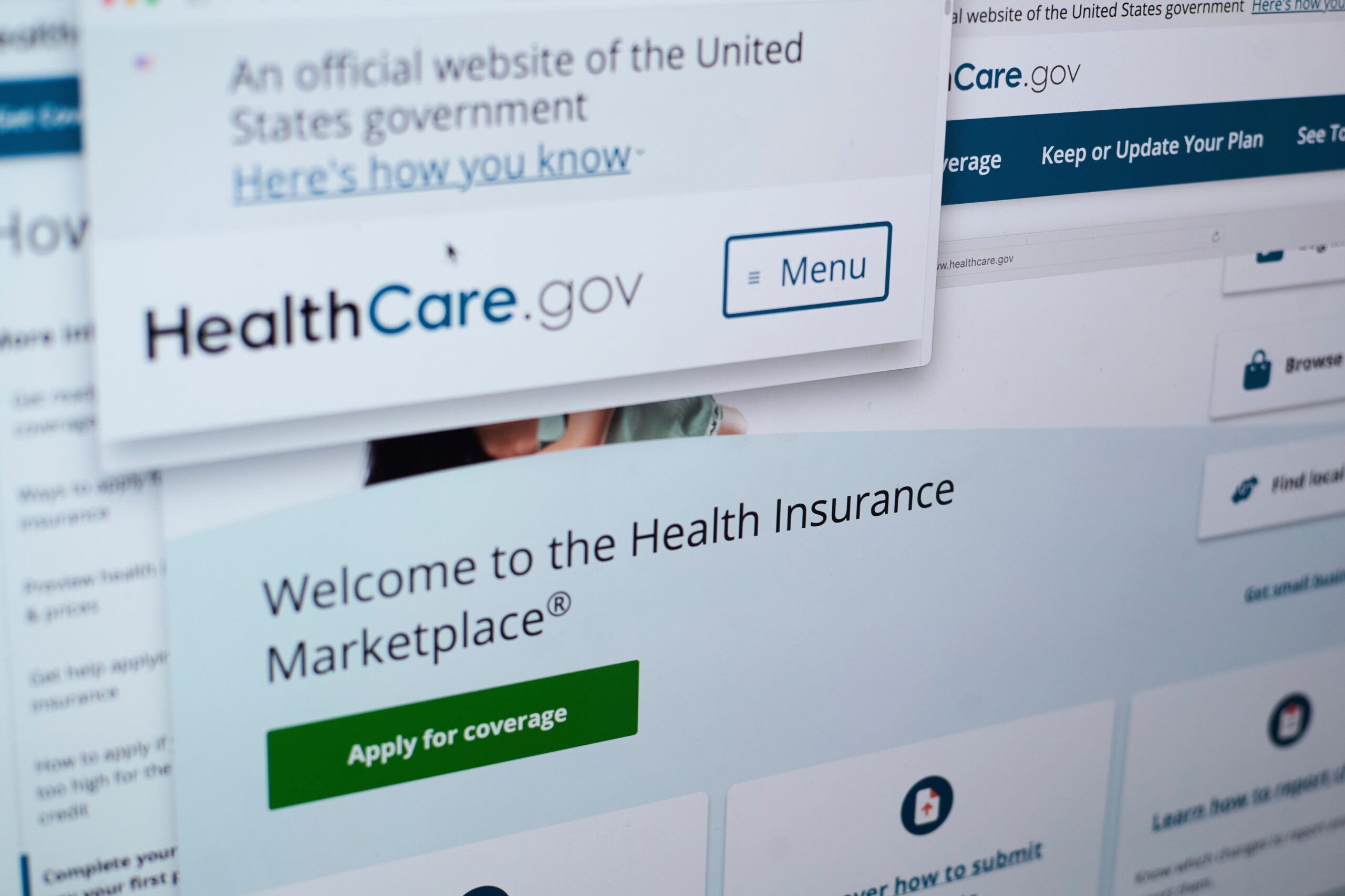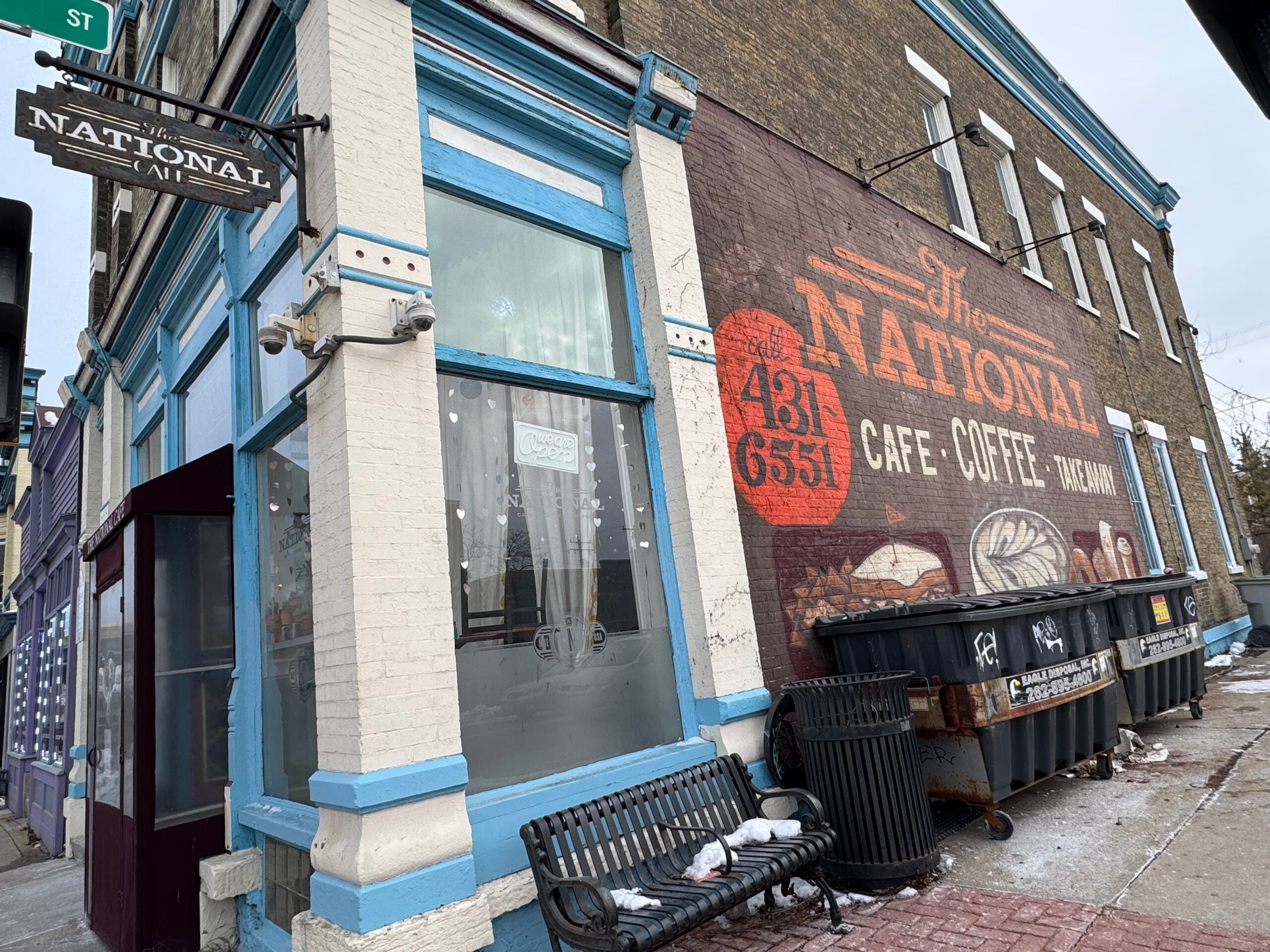After Gov. Tony Evers issued the “safer-at-home” order closing nonessential businesses, the state set up a website to help business owners determine whether or not their business was essential.
It listed the categories of businesses considered essential — from health care providers and manufacturers to retail stores and gas stations. At the bottom of the page, it also offered business owners, “in the exceptional circumstance that a business is performing essential functions not included in these approved categories,” an opportunity to apply to have the state designate their business as essential.
News with a little more humanity
WPR’s “Wisconsin Today” newsletter keeps you connected to the state you love without feeling overwhelmed. No paywall. No agenda. No corporate filter.
Within hours, the site was swamped.
“We’ve had a little bit of a challenge with an overload of the website,” said Missy Hughes, secretary and CEO of the Wisconsin Economic Development Corp., in a Tuesday call with business owners organized by lobbying giant Wisconsin Manufacturers & Commerce (WMC).
The call was closed to news media, but WMC later posted audio on its public YouTube channel.
“Going into this, we knew we would have lots of requests, and lots of folks looking to understand whether or not they can achieve a special designation,” Hughes said.
The rush of exemption requests reflected the uncertainty in Wisconsin this week about which businesses had been ordered closed and which could continue to operate during the state’s efforts to slow the spread of COVID-19.
There are some clear-cut categories of businesses that must close, such as dine-in restaurants and bars that aren’t doing takeout, hair salons and tattoo parlors. But there are many more employers that will remain open, and on Wednesday WEDC reminded companies they could decide for themselves whether their services fall under any of the order’s broad categories of exemption.
It’s led many people to question whether businesses that continue operating are essential — in some cases, even the owners themselves.
“My initial thought was no, there’s no way that we’re essential,” said Tom Diedrick, owner of Finishing Touch Signs, a sign-maker based in Rothschild. Upon reviewing the order, though, he learned the small business, which employs 11 people, is exempt from closing because it’s a supplier to health care organizations and other essential services.
“Once you look at what we do for many of our customers, then you can see the essential part of it,” Diedrick said.
Among Finishing Touch’s clients now are businesses adapting to the state order by selling takeout and curbside meals. They need signs and banners to communicate with potential customers, who can’t come inside their buildings.
Diedrick and other business owners interviewed for this story said they’re trying to protect workers by taking actions such as closing storefronts, implementing work from home where possible, reducing employee hours and staggering shifts. In her call with WMC members, those were steps Hughes emphasized, as well.
“Look at your business, make sure you’re doing everything you can to stay safe, keep employees safe,” Hughes said.
With many businesses continuing to operate, if at limited capacities, some workers have come into conflict with their employers, particularly if the workers are themselves in high-risk groups.
If an employee at a business designated essential feels uncomfortable going to work, that’s a problem they need to work out with their bosses, Evers said at a press conference Tuesday.
“I would encourage business owners, however, to understand the seriousness of the situation,” Evers said. “An employee that is uncomfortable and concerned, you may have to make some accommodations for that employee.”
Editor’s note: WPR’s Miranda Suarez contributed reporting.
Wisconsin Public Radio, © Copyright 2025, Board of Regents of the University of Wisconsin System and Wisconsin Educational Communications Board.







